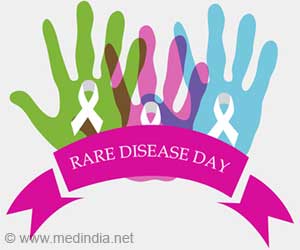Reinfections of COVID-19 increases chances of organ failure and death.
- Patients with reinfection of COVID-19 were twice as likely to die and three times more likely to need hospitalization than those who only dealt with COVID-19 once
- Multiple COVID-19 infection increased the chances of heart failure by 3 times
- Individuals who are unvaccinated and previously infected have a greater chance of being re-infected
In the early stages of the COVID-19 pandemic, it was anticipated that vaccines and prior infections would protect against infection. Though vaccines and previous infection help decrease the risk of serious illness, hospitalization, and death from COVID-19, they do not do much to guard against infection itself. The emergence of new, evasive variants complexes the issue.
The study, based on the health records of nearly 5.8 million people treated under the Veterans Affairs Health system, found that people with multiple COVID-19 infections had a higher risk of numerous health problems—including issues affecting the lungs, heart, brain and gastrointestinal system—up to six months after their last infection.
Mortality and Reinfections of COVID-19
Those with multiple infections were twice as likely to die and three times more likely to be hospitalized compared to people with just one infection, the researchers found.Relationship Between Reinfections of COVID-19 and Heart, Lungs, and Brain
They were also three times more likely to suffer from heart conditions, three and a half times more likely to develop lung problems and more than one and a half times more likely to experience brain conditions than people with only one infection, the researchers said.Are Vaccinated Individuals at Lower Risk of Organ Failure
Unvaccinated and previously people were both at greater risk from reinfections, the study found, and the research accounted for multiple COVID-19 variants including delta, omicron and the now-dominant BA.5.Avoid Death by Avoiding COVID-19
The risk of developing other health conditions appears to increase with each infection, said Washington University in St. Louis epidemiologist Dr. Ziyad Al-Aly, the study’s senior author, meaning it is best to avoid catching it again.Decreasing chances of Re-infection
Masking, staying home when sick and getting all eligible booster shots can help cut the risk of reinfection, Al-Aly said.Is COVID-19 Re-infection an Immunity Booster
Al-Aly said there has been “an air of invincibility” in recent months among people who have had COVID-19, been vaccinated, and boosted or, particularly, have been both vaccinated and infected. Some have started referring to this latter group as if they have some sort of “super-immunity,” Al-Aly said.“Without ambiguity, our research showed that getting an infection a second, third or fourth time contributes to additional health risks,” Al-Aly added, calling on people to be vigilant and implement strategies to reduce the risk of infection.
The research dispels the notion that COVID-19 reinfections are mild and of little consequence and suggests each infection can add new risk that builds up over time. These health issues sit alongside the litany of enduring health issues—including mental health problems, brain fog, fatigue, breathing issues and memory problems—associated with long COVID-19, which is a possibility each time someone encounters the virus.
Reference:
- The risks from covid-19 reinfection - (https://www.ncbi.nlm.nih.gov/pmc/articles/PMC9270065/)
Source-Medindia















